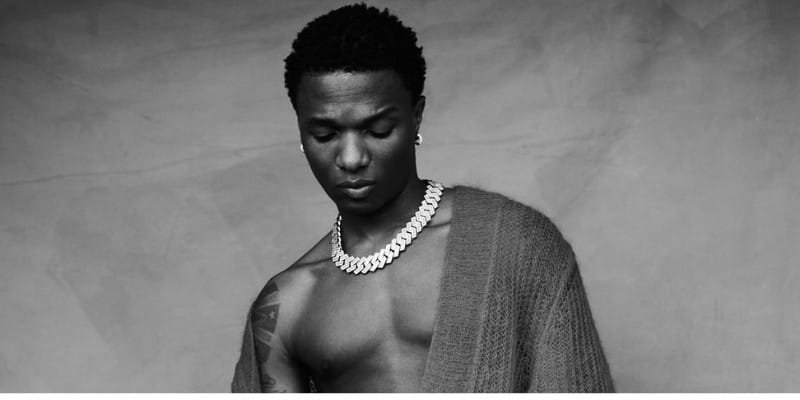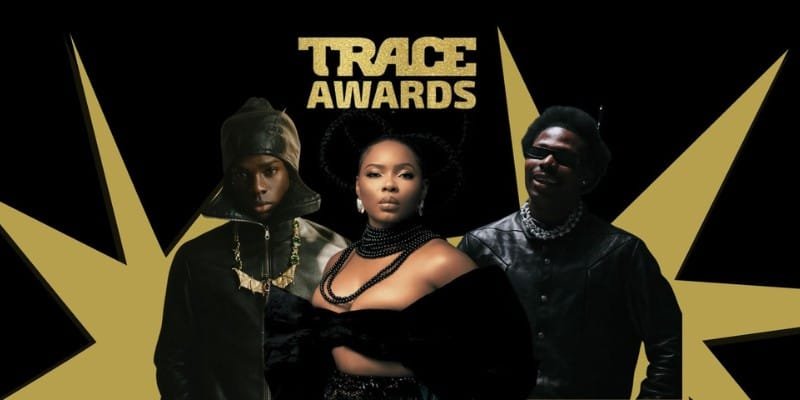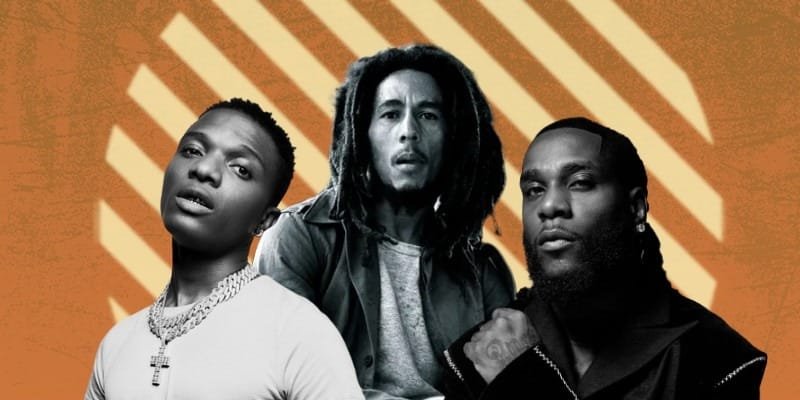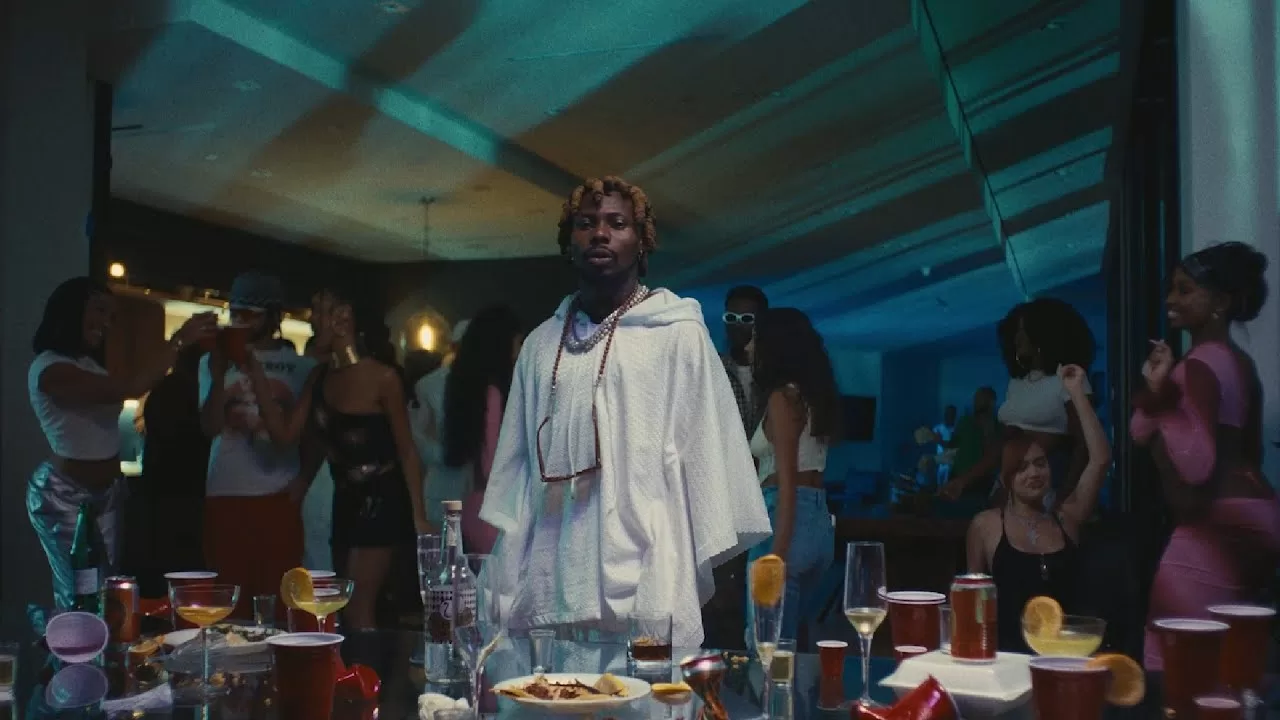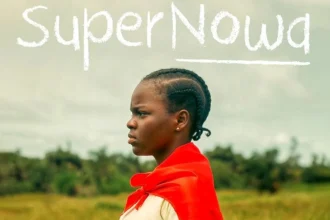In 2019, Joeboy emerged as part of Nigeria’s new vanguard of artists that disrupted the Afrobeats scene with his thrilling hit singles Baby and Beginning, establishing his status as one for the future. His 2021 debut album, Somewhere Between Beauty and Magic, positioned him as what Motolani Alake in his review of the album called “Nigeria’s answer to teenage Justin Bieber” – a clean-branded artist with an impressive way with hooks and melodies, crafting love-themed music that resonated particularly with younger millennials and Gen Z audiences. While his debut showcased his songwriting strengths and melodic gifts, it also revealed limitations in its singular focus and stylistic repetition.
By 2023’s Body & Soul, Joeboy had made significant artistic growth, moving beyond the one-man show of his debut and embracing collaboration with artists like BNXN, Odumodublvck, CKay, and American rapper Ludacris. His sophomore effort maintained familiar romantic themes but introduced a broader sonic palette and what he described as “more edge” and less innocence. Records like Contour and Alcohol revealed darker undertones while maintaining his usually optimistic perspective and intoxicating melodies that had become his trademark.
Now, with 2025’s Viva Lavida, Joeboy stands at a crucial juncture in his career. No longer an upstart but firmly established as a mainstay in Nigeria’s competitive music scene, the question becomes: will he continue the artistic expansion begun on Body & Soul, or retreat to safer territory?
The answer arrives immediately on the album’s breathtaking opening record, Innocent. Here, Joeboy delves deeper into the complexities of romance than ever before, pleading his innocence in a relationship gone wrong. The wide-eyed dreamer from his debut is gone; this Joeboy lays himself bare, his voice carrying palpable pain as he recalls giving his all to someone who repeatedly betrayed his trust – lying, breaking his heart, and relegating him to the dreaded “bro zone” despite his persistent support. Yet beneath the hurt lies a naivety, as he still questions whether she loves him when all evidence suggests otherwise. The song concludes with a brilliant chipmunk soul switch and sets the tone for what proves to be Joeboy’s most emotionally complex work.
He discusses the contributing elements to his failing relationship across the album. On the slow-burning Afropop-R&B fusion Streets Are Lonely, he notes her unwillingness to work on herself despite his continuous efforts to improve, suggesting she doesn’t want the relationship as badly as he does. The pain in his voice becomes even more palpable as he pours his emotions into the mic, supported by a sonic backdrop laced with soft kicks, haunting chords, backing vocals, and an infectious layered Chinese flute melody. He documents his regret in Taxi Driver, seemingly accepting that he’s better on his own before going on to beg for someone to comfort him. These contrasting desires showcase the depth of his pain, as his lamentations continue on the brooding SMH. Driven by punchy drums and rolling snares that create an intense atmosphere, he shows a hint of anger in his frustration, noting how something is missing in their relationship, how she seems unperturbed by it, and his eventual willingness to reject it.
The production of this album is both exciting and effective. While largely retaining the mid-tempo, bouncy, bass-driven melodic instrumentation that has become Joeboy’s signature, Viva Lavida features the consistent use of eerie synths, Asian flutes, and electronic elements. Magdalene stands out as Tempoe crafts an infectious instrumental that blends the melodies of vintage West African Highlife and elements of funk fusion with hints of Indian flutes. Joeboy employs a simple yet infectious melody that creates an intimate and romantic atmosphere with soft percussion, gentle guitar riffs, and a laid-back groove, giving it a nostalgic feel that his East African fan base will particularly love. Sunset is a stunning mid-tempo Afro-pop track that showcases the perfect blend of Elana Dara’s catchy melodies, a memorable hook, and Joeboy’s captivating vocals, which add a thrilling pop-infused edge. It’s easily one of the best songs on the album, though strong cases could be made for tracks like Innocent, Streets Are Lonely, and Free of Charge.
Joeboy has never been one to shy away from spending money on his woman – he once claimed to have spent more than 50 million naira on his girlfriend. To ease tension with his love interest, he flashes the chequebook on the Qing Madi-assisted Adenuga, likening his wealth to that of Nigerian billionaire Mike Adenuga: “If my love ain’t enough/My money plenty Adenuga,” he sings before asking her to “come and chop all his kaluba.” He enlists YBNL head honcho, Olamide Badoo, to reinforce his narrative on the hard-hitting Free of Charge, where he reveals his willingness to give everything he’s earned to his woman. The song’s smooth, mid-tempo Afrobeats instrumentation is laced with subtle and bouncy percussion, warm guitar riffs, and gentle synths, creating a laid-back vibe complemented by a groovy bassline that keeps the rhythm engaging while maintaining its airy and melodic feel. This allows Joeboy’s soothing vocals and Olamide’s lacklustre flow to shine.
While a large chunk of the album focuses on Joeboy’s turbulent relationship, outliers like the braggadocious Osadebe embody the album’s core theme as Joeboy reinforces his desire to live a worry-free life through an infectious and carefree hook. The spiritual plea of Hey Father and the compelling Sinner see Joeboy grapple with spirituality, while the uplifting I’ll Be Okay featuring Wizard Chan closes the album. Joeboy and Wizard Chan have a sneaky dynamic, and their contrasting styles seem to complement each other beautifully. This writer would love to see this dynamic explored in the form of an eight-track EP.
This album does everything right – it does everything well. While many might argue that it doesn’t do anything markedly different from Joeboy’s previous albums, Viva Lavida thrives on its brilliant execution of the simple things. While it might not be as sonically adventurous as Rema’s Heis or the potpourri of sounds that Ayra Starr’s The Year I Turned 21 presents, “Viva Lavida” excellently executes the basics while introducing distinctive elements.
The album houses numerous resonant songs that excel based on their strengths: astute songwriting, relatable soul, appropriate melodies, and distinctive instrumentation. Joeboy’s knack for crafting anthems shines throughout the album. The production cuts across Afropop, R&B, and Soul as Joeboy’s vocals journey across the emotional spectrum, fulfilling its requirements on every song.
As part of this album, Taxi Driver and SMH perform better than they did as singles, as their quality shines in the context of the other songs. As a single, SMH felt slightly unassuming, struggling to break free from stylistic similarities to previous Joeboy records. In the context of this album, it makes sense sonically and topically, even forming part of the album’s best run of songs.
Tempoe’s fingerprints are all over the album with his production delivering no shortage of goods. As executive producer, he brings Joeboy’s artistic vision to life, executing an album that prioritizes rich melodies and organic instrumentation that produces timeless and emotionally resonant music exploring Afrobeats with a global gaze. The supporting acts deliver admirably, especially Wizard Chan and Elana Dara. The Brazilian vocalist evokes feelings of longing with harmonies that intertwine beautifully with Joeboy’s, while Wizard Chan’s earthy delivery and spiritual perspective complement Joeboy perfectly on the album’s closer.
To answer the question: will he continue the artistic expansion begun on Body & Soul, or retreat to safer territory? The answer is neither one nor the other. Joeboy has indeed found his safe space, but he’s willing to expand its boundaries with every body of work. This balance between familiarity and innovation is precisely what makes Viva Lavida his strongest work to date.
By maintaining his core – the melodic sensibilities and romantic themes that first endeared him to audiences – while gradually expanding his emotional range and sonic palette, Joeboy delivers an album that satisfies his core audience while offering genuine artistic growth.
The boundary expansion shows itself in several crucial ways throughout the album. First, the emotional depth has significantly increased. Where earlier works might have skimmed the surface of romantic feelings, songs like Innocent and Streets Are Lonely plunge into complex emotional territories of betrayal, insecurity, and resignation.
Second, the production boundaries have widened. The incorporation of elements like chipmunk soul samples, Chinese and Indian flute melodies, and eerie synths, electronic and dance elements gives his sound a global perspective while remaining rooted in Afrobeats. Tempoe’s executive production ensures these explorations remain cohesive rather than scatterbrained experiments.
Third, Joeboy pushes against his vocal limitations. His delivery throughout the album showcases increased dynamic range, shifting smoothly between tender vulnerability required in the first half of the album and assertive confidence required in the second half of the album. This vocal growth allows him to carry the emotional weight of his more complex themes convincingly.
The brilliance of Joeboy’s approach is that these expansions never feel forced, they’re evolutionary. Each is an improvement on the last, making this third effort feel like the melting pot of lessons learned along the way. Rather than a dramatic reinvention, Joeboy offers us authentic growth – the sound of an artist becoming more fully himself with each release.
In an era where many artists either chase trends or refuse to evolve, Joeboy has towed a more sustainable path: gradual, thoughtful expansion from a solid base. Viva Lavida isn’t just Joeboy’s best album because it’s his most recent – it’s his best because it represents the most complete version we’ve seen thus far.









